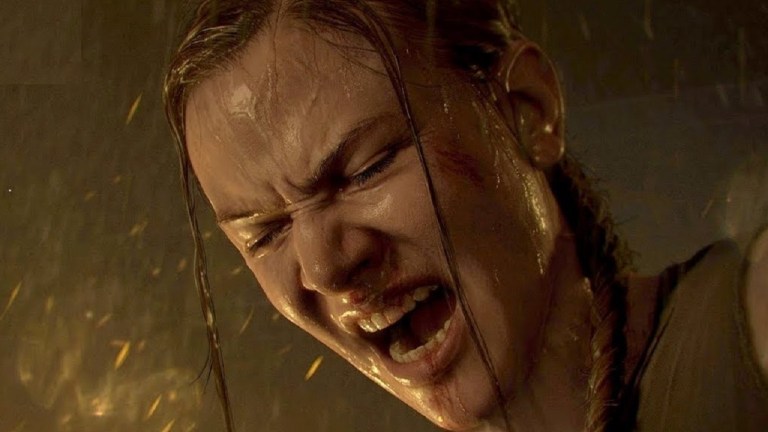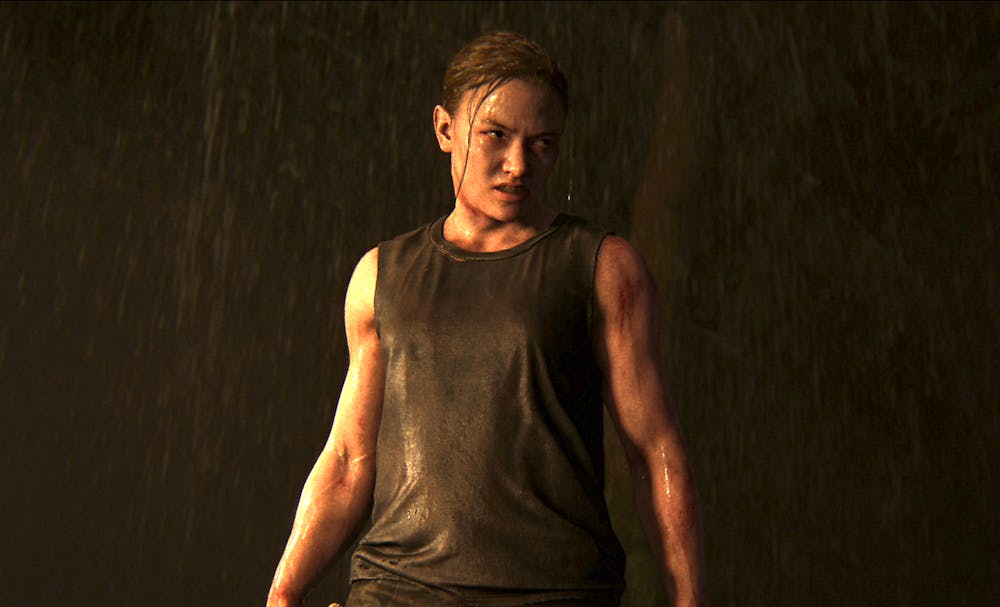Disclaimer: This article contains spoilers for the storyline of ‘The Last of Us Part II’
The opinions and views expressed in this article are those of the author and do not reflect the opinion of Byte or Byte’s editorial board.
With its recent Game of the Year win at the 2020 Game Awards and its six-month anniversary quickly approaching, I figured now would be the perfect time to revisit ‘The Last of Us Part II.’ When the game released on Jun. 19, its thrilling performances, pulse-pounding gameplay, and breathtaking visuals were all acclaimed. However, the same cannot be said for its narrative. Said narrative saw 19-year-old Ellie, one of the protagonists from 2013’s ‘The Last of Us’, go on the warpath in order to avenge the death of Joel, her father figure, and the other protagonist from the original game. The person responsible for Joel’s death was a young woman named Abigail “Abby” Anderson. In a shocking twist, players were made to control her for nearly half the game’s runtime. Such a tactic allowed for her perspective of the game’s storyline to be illustrated.

The double whammy of having to witness Joel die at the hands of Abby and having to play as her for such a long span of time, caused many players to find the narrative worthy of derision. They felt Joel’s death was stupid, meant to be simple shock value and nothing more. Some believed Joel should’ve come out a hero, sacrificing his life to save Ellie from…something. And others felt it was ludicrous they play as “Joel’s killer” and be forced to sympathize with Abby.
Unfortunately, this hatred towards Abby and her actions spilled into the real world. The talented Laura Bailey, who portrayed the character, received numerous death threats over this when the game first released. I don’t need to tell you that the actions committed by these people are heinous and utterly vile. (Mind you, not everyone who disliked the game sent these threats; it was only a select few).
But I digress. Instead, I want to talk more about Abby Anderson, and why I think she doesn’t deserve the hatred many have given her.
Who is Abby Anderson?
Before I give my thoughts, it’s important I give some background on who Abby is. In the world of ‘The Last of Us,’ she is the daughter of Dr. Jerry Anderson, a doctor in league with the Fireflies. This militia group formed after a fungal outbreak decimated 60% of humanity, and they desperately desired to create a cure. This led to Joel and Ellie’s journey in the original game, as Ellie was the only known person immune to the infection.
When they arrived at Saint Mary’s Hospital in Salt Lake City, the Fireflies’ headquarters, Ellie was to be prepped for surgery, with Jerry being the head surgeon. While Jerry doubted his abilities, especially considering how Ellie was to die during the operation, Abby reassured him. Unfortunately, Joel was made aware of Ellie’s fate and he subsequently killed many of the Fireflies in Saint Mary’s, Jerry included. This event devastated Abby, causing her to become obsessed with finding Joel for the next four years. Culminating with her and a group of her friends, and finding him near his home in Jackson, Wyoming. It was here where Abby killed him, sending Ellie down her own path of vengeance.
A hole-in-one
Here’s where I’m going to get controversial, so strap yourselves in: I strongly believe Abby is a great character. Do I still have your attention? Good, because I would like to explain why.

For starters, I would like to address the elephant in the room. I believe the only reason people hate this character is due to the fact she killed Joel. Now, don’t get me wrong: I hated Abby for this same reason during my first playthrough. In fact, I utterly despised her during the first half of the story. Much like Ellie, Abby was the antagonist in my eyes. She killed Joel, our precious Joel, and both Ellie and I wanted to take her down. What makes Abby think she can get away with such a crime? Well…with a viewpoint like that, it really hampers how Abby’s character is perceived, and it glosses over the ample development her side of the story gives to the overall experience.
As I mentioned earlier, you have no choice but to play as Abby during the second half of the story. During these sections, you play through the same length of in-universe time (which is three days in Seattle, Washington) as Ellie, but from Abby’s perspective. Through this, you discover that even after avenging her father’s death, Abby has found no sense of peace. She still suffers from the nightmares that plagued her since Jerry died, and her relationships with those close to her have been irreversibly fractured. The greatest victim of this was her relationship with her ex-boyfriend Owen.
Although I didn’t see it at first, it took me until my second play through to sympathize with Joel’s killer. I no longer saw her as some inhuman monster that needed to be stopped, but rather as a flawed human being. Although it is something I don’t condone, I found Abby’s drive to kill Joel understandable. He killed her father so he could save Ellie, who was essentially a second daughter to him. However, the decision left Abby as an orphan. Such feelings of anger, rage, and revenge are entirely within reason for anyone who goes through this, especially when you figure out who was responsible.
Moving onward, Abby grows more compassionate upon the arrival of two new characters: Lev and Yara. The brother-sister duo are members of a religious sect called the Seraphites, who are embroiled in a turf war with the Washington Liberation Front, a militia group that Abby herself is a member of. Lev and Yara end up saving Abby’s life when she is captured by the Seraphites. Because of this, she develops a protective attachment to them. Her connection to the siblings allows Abby to feel some semblance of humanity for the first time in years, and it allows her to find closure over her father’s death.
In a way, Abby’s character mirrors Joel’s from the original game. There, Joel was a survivor who had been hardened due to the death of his daughter, Sarah, at the onset of the outbreak. However, Joel regains his humanity through his relationship with Ellie, finding his sense of purpose in protecting someone other than himself. The fact that Abby shares similarities with him is quite interesting, but I feel it highlights something I love so much about her character: no matter how far you fall, you can still find a way to get back up.
I have one last thing to discuss: the resolution of Abby’s arc. At the end of the game, she and Lev have been held captive for months by a group called the Rattlers. Thankfully, they are freed by none other than Ellie, who tracked them to Santa Barbara, California. By this point in the game, Abby is no longer the obsessive, revenge-driven woman she once was. She is now a weakened yet determined older sister to Lev, wanting to protect him as they journey to Catalina Island. At this point, they are searching for the Fireflies, who are revealed to be actively regrouping. After a brutal fight with Ellie, which ends with letting her go, Abby takes a boat she uses to go to the island with Lev. With that, her journey has reached its conclusion.
While it was a turbulent ride, I inevitably found Abby Anderson to be a fascinating and gripping character. Yes, what she did to Joel was unforgivable, but the world of ‘The Last of Us’ is in itself unforgivable. Joel himself has done horrible things in order to survive. Ellie has taken numerous lives in pursuit of Abby. And even in spite of that, these three, along with the many other characters who inhabit this world, have also shown compassion and love for others. Nothing is black and white here, just shades of grey—and Abby Anderson is a great example of that.
Sources: CNET, Forbes, Kotaku, Polygon, TechRadar
Images: Den of Geek, YouTube
Featured Image: Inverse
For more entertainment related content, visit us at Byte BSU!




















